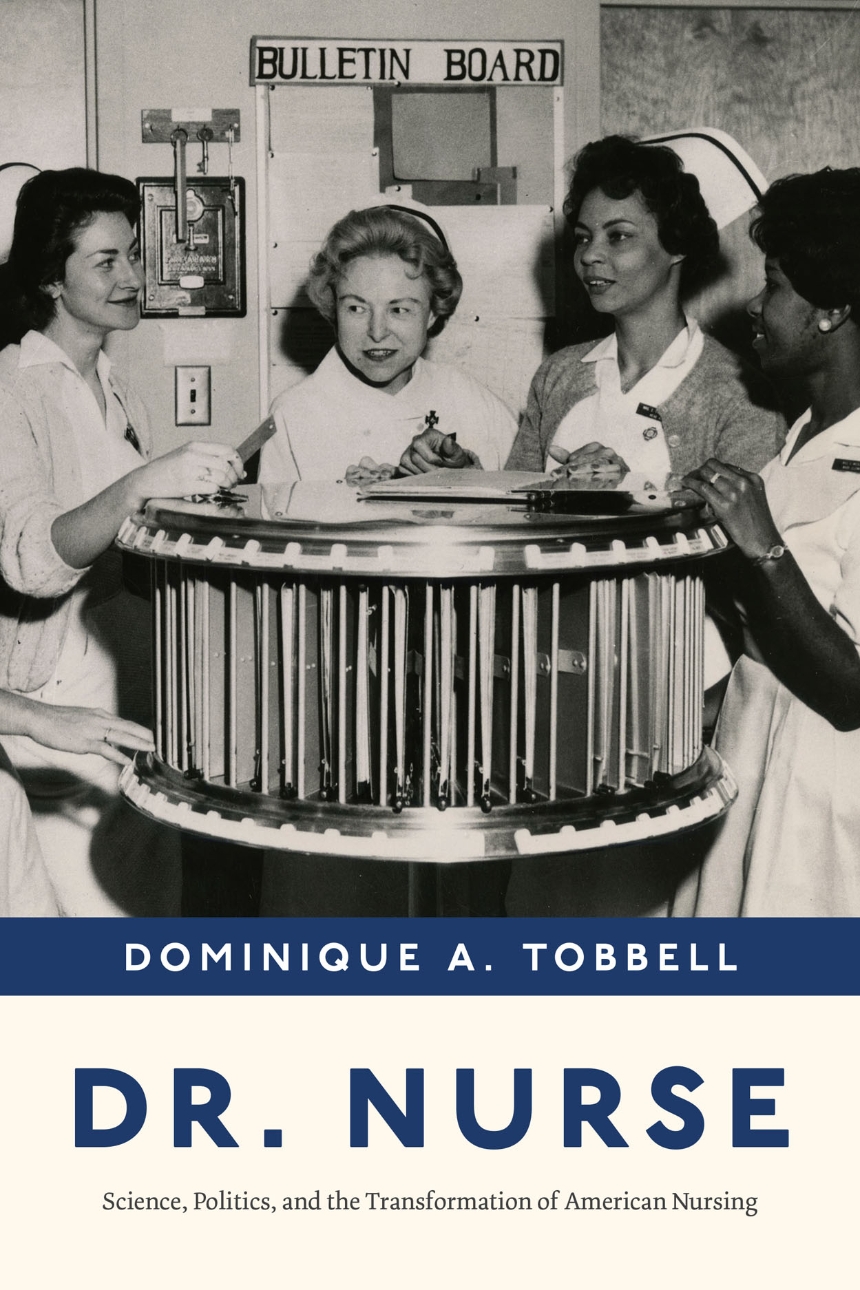Dr. Nurse
Science, Politics, and the Transformation of American Nursing
9780226822907
9780226822884
9780226822891
9780226833163
Dr. Nurse
Science, Politics, and the Transformation of American Nursing
An analysis of the efforts of American nurses to establish nursing as an academic discipline and nurses as valued researchers in the decades after World War II.
Nurses represent the largest segment of the U.S. health care workforce and spend significantly more time with patients than any other member of the health care team. Dr. Nurse probes their history to examine major changes that have taken place in American health care in the second half of the twentieth century. The book reveals how federal and state health and higher education policies shaped education within health professions after World War II.
Starting in the 1950s, academic nurses sought to construct a science of nursing—distinct from that of the related biomedical or behavioral sciences—that would provide the basis for nursing practice. Their efforts transformed nursing’s labor into a valuable site of knowledge production and proved how the application of their knowledge was integral to improving patient outcomes. Exploring the knowledge claims, strategies, and politics involved as academic nurses negotiated their roles and nursing’s future, Dr. Nurse highlights how state-supported health centers have profoundly shaped nursing education and health care delivery.
Nurses represent the largest segment of the U.S. health care workforce and spend significantly more time with patients than any other member of the health care team. Dr. Nurse probes their history to examine major changes that have taken place in American health care in the second half of the twentieth century. The book reveals how federal and state health and higher education policies shaped education within health professions after World War II.
Starting in the 1950s, academic nurses sought to construct a science of nursing—distinct from that of the related biomedical or behavioral sciences—that would provide the basis for nursing practice. Their efforts transformed nursing’s labor into a valuable site of knowledge production and proved how the application of their knowledge was integral to improving patient outcomes. Exploring the knowledge claims, strategies, and politics involved as academic nurses negotiated their roles and nursing’s future, Dr. Nurse highlights how state-supported health centers have profoundly shaped nursing education and health care delivery.
Reviews
Table of Contents
Introduction
1. The Need for Educational Reform
2. The Making of Nursing Science
3. Nursing in the Postwar Research University
4. “Nursepower”: States and the Politics of Nursing and Health Care in the 1970s
5. Academics in the Clinic
Conclusion
Acknowledgments
Archives and Collections
Notes
Selected Bibliography
Index
1. The Need for Educational Reform
2. The Making of Nursing Science
3. Nursing in the Postwar Research University
4. “Nursepower”: States and the Politics of Nursing and Health Care in the 1970s
5. Academics in the Clinic
Conclusion
Acknowledgments
Archives and Collections
Notes
Selected Bibliography
Index
Awards
American Journal of Nursing: American Journal of Nursing Book of the Year Award
Third Place
American Association for the History of Nursing: Lavinia L. Dock Award
Won
